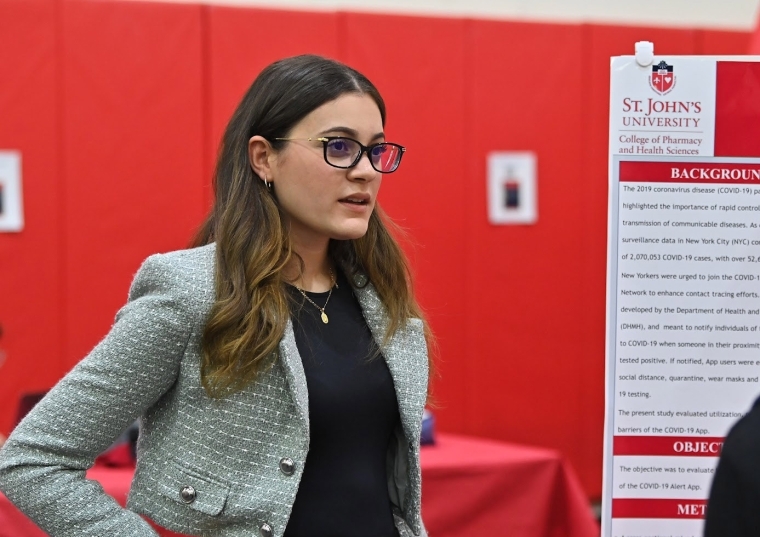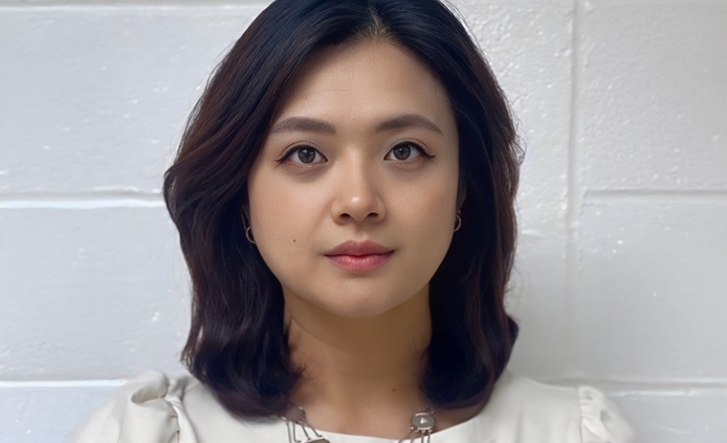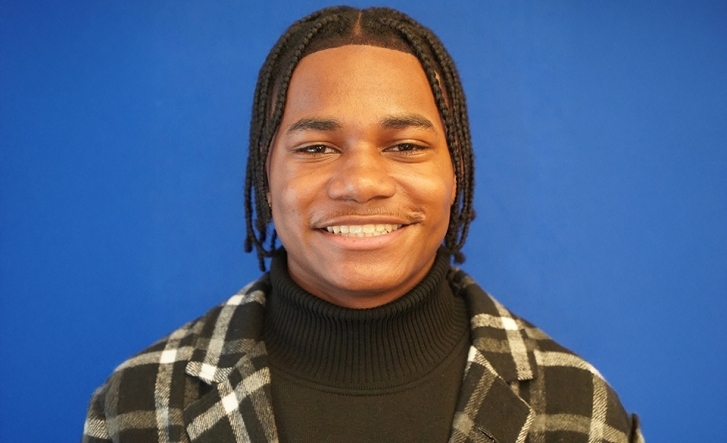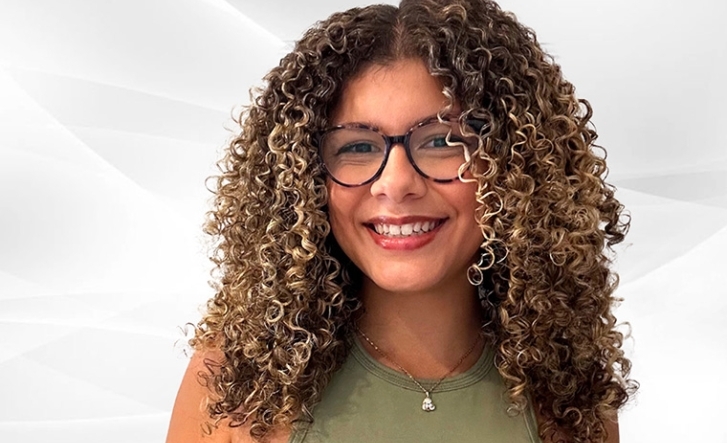Student Is a Driving Force in COVID-19 Research Studies
The COVID-19 pandemic interfered with Julissa Gomez’s time at St. John’s University. But rather than dwell in disappointment, she used her pandemic experiences as a foundation for research success.

“It was a great experience to be so involved in activities that will carry on after I graduate,” Julissa said. “Part of the reason I came here and wanted to be part of these organizations is because they care so deeply about things that are valuable to me.”
While at St. John’s, Julissa, 21, was a driving force behind three research studies on the impact of COVID-19 on various population subgroups. She will graduate this month with a Bachelor of Science degree in Biomedical Sciences and hopes to become an epidemiologist, investigating patterns in and causes of diseases.
“My goal is to become what I call a ‘social epidemiologist,’ to investigate health disparities in minority populations, but also to do disease surveillance and discover how we can curtail the spread of diseases,” Julissa said.
Often called “disease detectives,” epidemiologists were thrust into public consciousness in the early stages of the pandemic. Analyzing data on infections, deaths, and the transmissibility of COVID-19, they helped to drive global policy decisions, including the value of mask wearing, social distancing, and lockdowns as means of containing the virus.
In her research projects, Julissa first partnered on a study that examined the impact of COVID-19 on elderly and minority populations, then another on its impact on those with metabolic abnormalities, including diabetes, cardiovascular disease, and obesity. A paper emerging from that study, done under the leadership of Yolene Gousse, Dr.PH., M.P.H. ’96C, Assistant Professor/Industry Professional, Department of Pharmacy Administration and Public Health, is being considered for medical journal publication.
“That is such an honor,” Julissa said.
Finally, she studied how students at St. John’s made use of an app that would quickly notify close contacts of a subject’s potential exposure to the virus. St. John’s students, citing privacy concerns, were wary of the app, Julissa and fellow student researcher Sharupa Azmal found.
“Students acknowledged it was effective,” Julissa said, “but privacy issues restrained a lot of people from using it to its full capability. Those concerns are valid, but from a public health perspective this app could have broad applicability if and when there is another pandemic.”
Many epidemiologists are medical doctors. Julissa is not planning to attend medical school but will pursue a Master of Public Health degree from New York University after graduating from St. John’s. A future doctoral degree is not out of the question.
In the summer of 2021, Julissa did an internship with the Biostatistics and Epidemiology Summer Training Program at Columbia University’s Mailman School of Public Health. “One of the misconceptions about epidemiology is that you need to attend medical school,” she said. “But there are so many things you can do in public health with data science that do not involve becoming a doctor. I would prefer to concentrate on health-care disparities in minority populations. That was really evident in the pandemic.”
Her mentor, Shanzhi Wang, Ph.D., Associate Professor, Department of Pharmaceutical Sciences, College of Pharmacy and Health Sciences, sees in Julissa all the qualities of a good researcher and is convinced she will succeed.
“Julissa is a real easygoing and engaging person; she works very well with other students,” Dr. Wang said. “But also, her interest in public health is genuine and she is committed to her research. As an undergraduate, to be considered for publication in a professional journal is quite an accomplishment.”
A graduate of St. Francis Preparatory School in Fresh Meadows, NY, just a few miles from St. John’s Queens, NY, campus, Julissa always felt drawn to St. John’s University. Her father Robert Gomez ’06CPS is an alumnus; Julissa will be the first member of her family to attend graduate school.
Admittedly a reserved personality when she arrived on campus, Julissa matured into a research leader in her four years at St. John’s. As community service chair of her sorority, Delta Phi Epsilon, she helped to organize a fashion show to benefit philanthropies that support treatment for eating disorders such as anorexia and bulimia.
She also worked in the Division of Student Affairs, helping to organize other student fundraisers and events that will continue after her graduation.
“It was a great experience to be so involved in activities that will carry on after I graduate,” Julissa said. “Part of the reason I came here and wanted to be part of these organizations is because they care so deeply about things that are valuable to me.”



